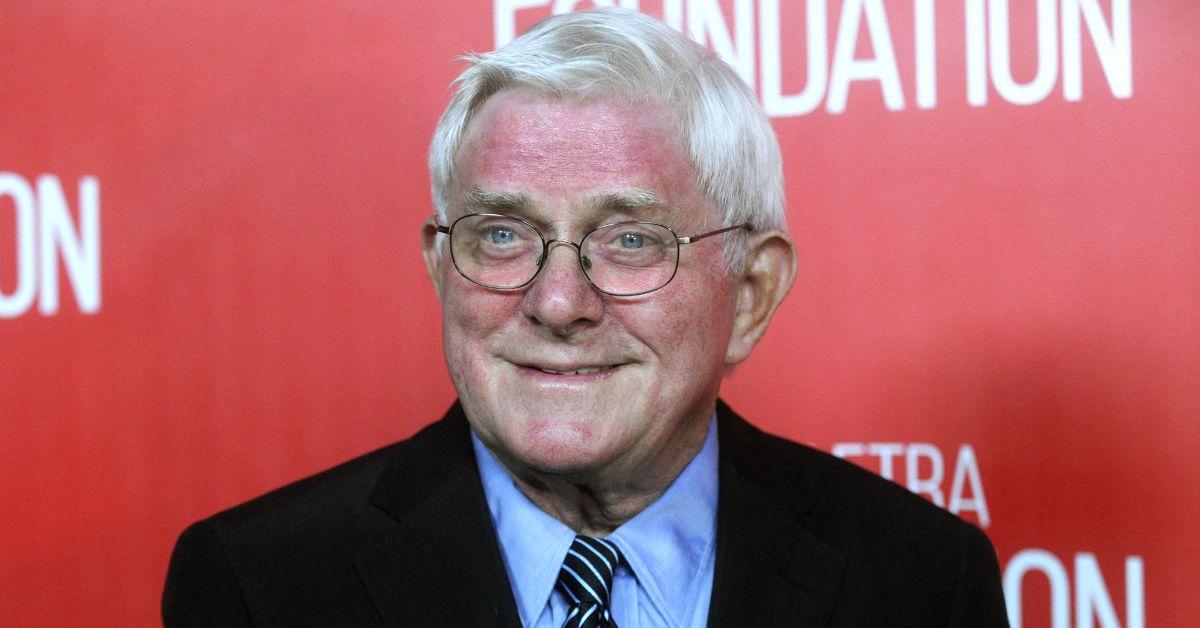Did Phil Donahue, the pioneering talk show host, grapple with dementia in his later years? The lack of definitive public statements and the shroud of privacy surrounding his health cast a long shadow of speculation, leaving many to wonder about the true state of his cognitive well-being.
The question of whether Phil Donahue experienced dementia is not merely a matter of personal curiosity; it's a reflection of broader societal anxieties concerning aging, the challenges of mental health, and the blurring lines between public and private lives, especially for those in the spotlight. The world of daytime television was undeniably changed by Donahue, and now, in the wake of his passing at the age of 88 after a long illness, the focus naturally shifts to the specifics of his health and the impact it had on his later years. While some details have emerged about his final days, the exact nature of his illness, which his family chose not to disclose, has kept the media guessing. The absence from public life in his final years fueled further speculation among fans and followers. This, of course, is compounded by the natural human concern for those we admire and the inherent difficulty in separating a public persona from the private realities of an individual's life.
| Phil Donahue: A Biographical Overview | |
|---|---|
| Full Name | Philip John Donahue |
| Born | December 21, 1935, Cleveland, Ohio, USA |
| Died | March 27, 2024, New York City, USA (Age 88) |
| Occupation | Television Talk Show Host, Producer, Writer |
| Known For | "The Phil Donahue Show" - Pioneering Daytime Talk Show |
| Spouse(s) | Margaret Cooney (m. 1958; div. 1975), Marlo Thomas (m. 1980 present) |
| Children | Five (with Margaret Cooney) |
| Career Highlights | Launched "The Phil Donahue Show" in 1967, revolutionized daytime television with audience participation. Won numerous Emmy Awards. Interviewed a diverse range of guests, tackling controversial topics. Hosted a show on MSNBC from 2002 to 2003. |
| Awards and Recognition | Numerous Daytime Emmy Awards, Peabody Awards, Lifetime Achievement Awards |
| Legacy | Revolutionized daytime television, paving the way for other talk shows. Created a platform for audience participation and open dialogue. |
| Reference Website | IMDB: Phil Donahue |
Donahue's impact on television is undeniable. His groundbreaking approach, originating in 1967 with the launch of "The Phil Donahue Show" in Dayton, Ohio, forever changed the landscape of daytime television. His innovative idea of directly engaging the studio audience by asking them for questions transformed the format, moving away from the traditional monologue and interview style. This participatory style was revolutionary and quickly set his show apart, fostering a sense of community and open dialogue that had never been seen before on such a scale. His guests gave cooking lessons, taught break dancing and, more controversially, described \u201cmansharing,\u201d being a mistress, lesbian motherhood or \u2014 with the help of gathered video that got shows banned in certain cities \u2014 how natural childbirth, abortion or. His ability to tackle controversial and complex issues, often ignored by mainstream media, was a key factor in the show's enduring popularity and its influence on the cultural conversation. This approach allowed him to build a loyal following and create a unique space for diverse voices and perspectives.
However, as with many public figures, the later years of Donahue's life were marked by a growing degree of privacy. While he remained involved in some projects, his presence in the public sphere diminished. This, coupled with the natural aging process, fueled speculation about his health, particularly regarding cognitive function. The lack of explicit public information, as is the right of any individual, only amplified the rumors and conjecture.
The impact of Donahue's pioneering work on daytime television is undeniable. Oprah Winfrey herself acknowledged his influence, stating unequivocally, "There wouldn't have been an Oprah show without Phil Donahue." Winfrey made this statement while handing Donahue a lifetime achievement award at the Daytime Emmy Awards in 1996, highlighting his foundational role in shaping the genre. His success paved the way for countless other talk shows, influencing the format and content of daytime television for decades. In a tribute shared on social media, Winfrey further cemented his legacy in the industry.
The question of whether Donahue experienced dementia is a sensitive one, involving considerations of his personal life and right to privacy. There is no publicly available, verified information to definitively confirm or deny any diagnosis. This underscores the challenges of separating public perception from private realities. The focus, as in the case of any individual, should remain on respecting privacy and acknowledging the impact he had on society.
While it is crucial to approach the subject of Donahue's health with respect and sensitivity, the fact remains that his contributions to television are substantial. His legacy extends far beyond the ratings and awards; he created a platform for open dialogue, giving voice to underrepresented perspectives and challenging conventional norms. His influence is still visible on television screens today. He was known for his willingness to tackle complex issues, often featuring controversial topics and guests, and for fostering a sense of community and engagement with the audience. This innovative approach helped him become a television pioneer, and the format is still widely used today.
The details surrounding his illness, which his family did not disclose, serve as a reminder of the complexities of public figures' private lives and the importance of respecting their privacy. While fans and followers may wonder about his health, it is essential to rely on factual information rather than speculation. The passing of Phil Donahue serves as a moment to acknowledge the impact he made on television. He created a format that is still being used to this day. His memory should be honored by celebrating his achievements and acknowledging his contribution to the world of television.



